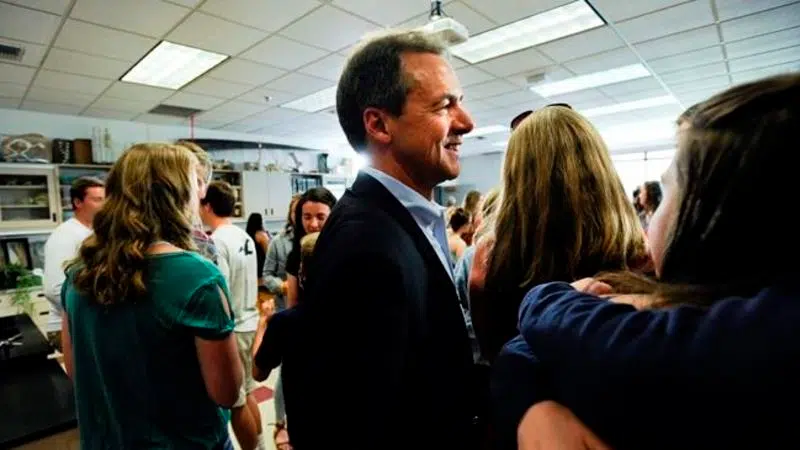
Montana Gov. Bullock joins 2020 Democratic presidential race
HELENA, Mont. — Montana Gov. Steve Bullock announced Tuesday that he is seeking the Democratic presidential nomination, distinguishing himself among nearly two dozen candidates as the field’s only statewide elected official to win a state that President Donald Trump carried in 2016.
The 53-year-old governor is running as a centrist Democrat who has advanced party values while navigating a Republican legislature and a GOP-leaning electorate. Bullock made his candidacy official in a video that capped months of speculation fueled by his political activity in Iowa, which hosts the nation’s first presidential caucus next February.
“What we need to do is get the country back on track, make sure everybody has a fair shot at success,” he told The Associated Press in an interview. “I’ve been able to get meaningful things done that impact the people of my state. I believe there’ll be a strong reception for that.”
